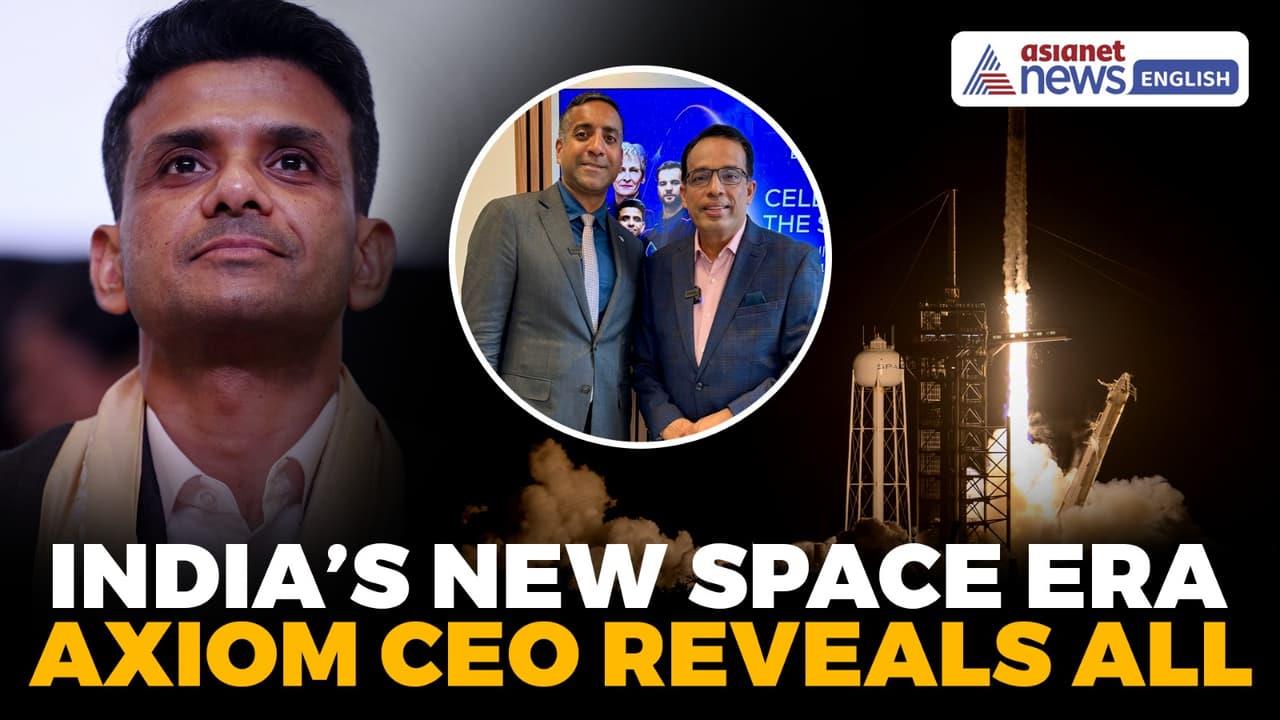
What Shubhanshu Shukla's AX-4 Mission Means For India & Global Space Exploration Axiom Space CEO EXCLUSIVE
Tejpaul Bhatia, CEO of Axiom Space, spoke exclusively to Dr. Krishna Kishore of Asianet News in New York, describing the Axiom 4 mission as“one of the most defining moments in space history.” The mission etched its name in history when Shubhanshu Shukla became the first Indian astronaut to journey to the International Space Station (ISS). He was joined by Tibor Kapu of Hungary, Sławosz Uznański-Wiśniewski of Poland, in a mission led by the celebrated American astronaut Peggy Whitson, underscoring the truly global character of the mission.
Bhatia said what thrilled him most was the mission's success in“bringing the crew together, science together, and the world together.” Beyond the scientific breakthroughs, he emphasized the importance of taking the global public along on the journey.“This was a chance for us to show the world what Axiom could achieve,” he noted.
A Historic Partnership with India
Calling the collaboration with India“historic,” Bhatia explained how Axiom Space moved at lightning speed to ink a partnership within just nine months. The deal, involving the governments of India and the United States alongside ISRO, overcame formidable policy and bureaucratic hurdles.“To surpass those challenges between two of the world's largest democracies and safely bring Shubhanshu and the crew home was the most gratifying,” he said.
For Bhatia, the achievement carried an additional layer of meaning.“As CEO of Axiom, as a human being, and as an Indian American, being part of this history was deeply personal. It was about enabling history and inspiring the younger generation in India to dream about science and space.”
The Future of Commercial Space
Looking ahead, Bhatia stressed the importance of fostering collaboration and partnerships in ventures of this scale. He pointed to the rise of a private space ecosystem powered by venture capital and technology companies as the next great leap. Axiom, he said, is at the forefront of this evolution, pioneering breakthroughs in commercial space exploration.
A key part of that vision is building the next space station by attaching Axiom's own modules to the existing ISS, which is slated for retirement by 2030.“We are developing the building blocks for the future of human spaceflight,” Bhatia explained.
The Axiom 4 mission was historic not only for India but also for Hungary, Poland, and the United States. With Tibor Kapu, Sławosz Uznański-Wiśniewski, and Shubhanshu Shukla on board, the mission marked a new chapter for three nations alongside the United States, where NASA, SpaceX, and Axiom worked together in perfect symphony. Adding to the significance, one of America's most celebrated astronauts, Peggy Whitson, commanded the mission.
In essence, Bhatia's message was clear: the Axiom 4 mission was not only about sending astronauts into space but also about showing what global partnerships can achieve, inspiring youth across continents, and laying the foundation for the next era of human space exploration.
Legal Disclaimer:
MENAFN provides the
information “as is” without warranty of any kind. We do not accept
any responsibility or liability for the accuracy, content, images,
videos, licenses, completeness, legality, or reliability of the information
contained in this article. If you have any complaints or copyright
issues related to this article, kindly contact the provider above.


















Comments
No comment